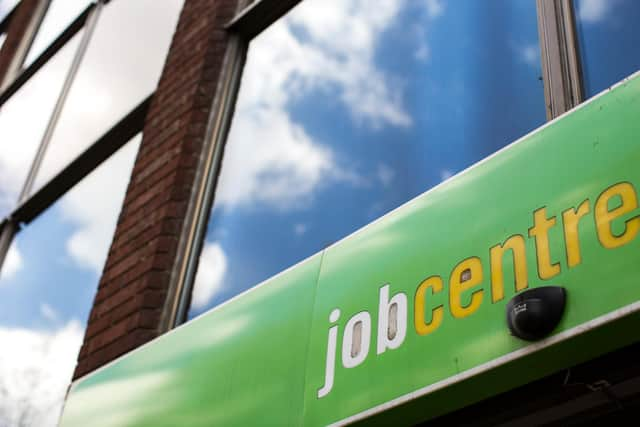Positive outlook for Scottish labour market after further recovery in June
The lender found that hiring activity gained pace again amid reports that companies were stepping up their hiring efforts in line with easing lockdown restrictions and rising economic activity.
The latest upturn in permanent placements slowed “noticeably” from May's all-time high, but was still quick overall. The permanent placements index reached 63.8 in the month, down from 71.2 in May, while temp billings growth also remained historically elevated, with the latter index settling at 66.2.
Advertisement
Hide AdAdvertisement
Hide AdMeanwhile, vacancies for both permanent and short-term staff grew at the steepest rates in the survey’s history, but recruiters signalled steeper falls in staff supply.


The number of permanent staff appointments across Scotland headed upwards in June. Many firms had powered up their hiring efforts amid looser Covid-19 restrictions and a rebound in economic activity, according to respondents. “The rate of increase slowed from May's record pace, but remained among the quickest on record and sharp overall,” RBS said.
June data highlighted a further upturn in temp billings across Scotland, extending the current sequence of growth to ten months – and despite slowing slightly on the month, the rate of increase was the second-quickest for 14 years and marked overall.
Additionally, and for the fifth month in a row, the supply of permanent candidates across Scotland fell in June, with the rate of decline the fastest since March 2019.
Turning to the availability of temporary candidates across Scotland, this fell substantially during June, with the respective seasonally adjusted index falling just over 14 points on the month to an all-time low, “signalling the steepest downturn in temp staff supply on record”. Increased demand for staff, a reluctance among candidates to switch roles, and Brexit were among cited contributory factors.
A seventh consecutive monthly rise in permanent starting salaries across Scotland was registered last month, while recruiters across Scotland recorded a further increase in average hourly wages for short-term staff, amid reports that difficulties finding staff had led firms to raise pay rates. Temp wages have now risen in all but one of the past nine months, the lender also noted.
Ascending
Demand for permanent staff across Scotland rose sharply again during June. The respective seasonally adjusted index reached a fresh series high to signal the fastest rise in permanent vacancies since data collection began in January 2003. The rate of increase was also broadly in line with that seen across the UK as a whole. Across the monitored sectors, IT and computing registered the quickest increase in vacancies.
Recruiters across Scotland registered a further rise in the number of temporary vacancies during June, extending the current sequence of strengthening demand to nine months. The rate of increase quickened to a fresh series record, with blue-collar roles seeing the strongest rise in vacancies.
Advertisement
Hide AdAdvertisement
Hide AdRBS chief economist Sebastian Burnside said June data “pointed to a sustained rebound of the Scottish labour market”, and he flagged nervousness among some candidates around moving roles having led to worker shortages. “With lockdown measures set to ease further, and a return to more normal business conditions, these concerns should diminish, which should support a sustained rebound in Scottish labour market conditions over the coming months.”
A message from the Editor:
Thank you for reading this article. We're more reliant on your support than ever as the shift in consumer habits brought about by coronavirus impacts our advertisers.
If you haven't already, please consider supporting our trusted, fact-checked journalism by taking out a digital subscription.
Comments
Want to join the conversation? Please or to comment on this article.
